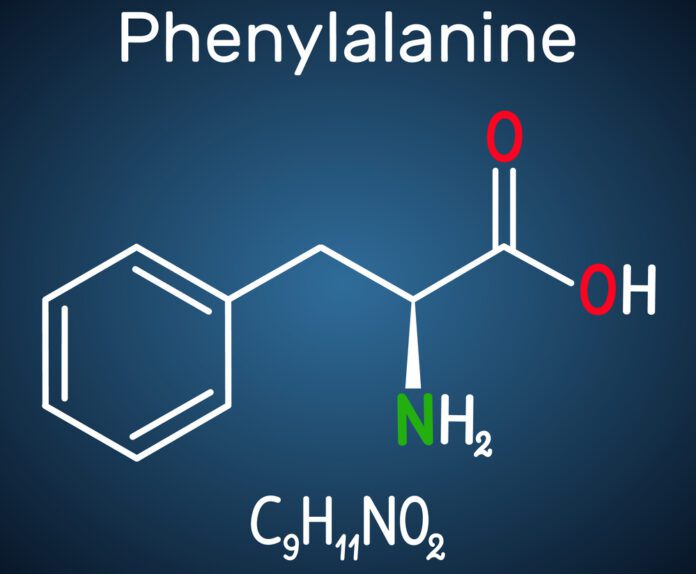Overview Of Phenylketonuria (PKU)
Phenylketonuria (PKU) is a rare condition in which a baby is born without the ability to properly break down an amino acid called phenylalanine.
Commonly Associated With
Neonatal phenylketonuria
Causes Of Phenylketonuria (PKU)
Phenylketonuria (PKU) is inherited, which means it is passed down through families. Both parents must pass on a non-working copy of the gene in order for a baby to have the condition. When this is the case, their children have a 1 in 4 chance of being affected.
Babies with PKU are missing an enzyme called phenylalanine hydroxylase. It is needed to break down the essential amino acid phenylalanine. Phenylalanine is found in foods that contain protein.
Without the enzyme, levels of phenylalanine build up in the body. This buildup can harm the central nervous system and cause brain damage.
Symptoms Of Phenylketonuria (PKU)
Phenylalanine plays a role in the body’s production of melanin. The pigment is responsible for skin and hair color. Therefore, infants with the condition often have lighter skin, hair, and eyes than brothers or sisters without the disease.
Other symptoms may include:
- Delayed mental and social skills
- Head size much smaller than normal
- Hyperactivity
- Jerking movements of the arms or legs
- Mental disability
- Seizures
- Skin rashes
- Tremors
If PKU is untreated, or if foods containing phenylalanine are eaten, the breath, skin, ear wax, and urine may have a “mousy” or “musty” odor. This odor is due to a buildup of phenylalanine substances in the body.
Exams & Tests
PKU can be easily detected with a simple blood test. All states in the United States require a PKU screening test for all newborns as part of the newborn screening panel. The test is generally done by taking a few drops of blood from the baby before the baby leaves the hospital.
If the screening test is positive, further blood and urine tests are required to confirm the diagnosis. Genetic testing is also done.
Treatment Of Phenylketonuria (PKU)
PKU is a treatable disease. Treatment involves a diet that is very low in phenylalanine, particularly when the child is growing. The diet must be strictly followed. This requires close supervision by a registered dietitian or doctor and the cooperation of the parent and child. Those who continue the diet into adulthood have better physical and mental health than those who don’t stay on it. “Diet for life” has become the standard most experts recommend. Women who have PKU need to follow the diet before conception and throughout pregnancy.
There are large amounts of phenylalanine in milk, eggs, and other common foods. The artificial sweetener NutraSweet (aspartame) also contains phenylalanine. Any products containing aspartame should be avoided.
There are several special formulas made for infants with PKU. These can be used as a protein source that is extremely low in phenylalanine and balanced for the remaining essential amino acids. Older children and adults use a different formula that provides protein in the amounts they need. People with PKU need to take formula every day for their entire life.



